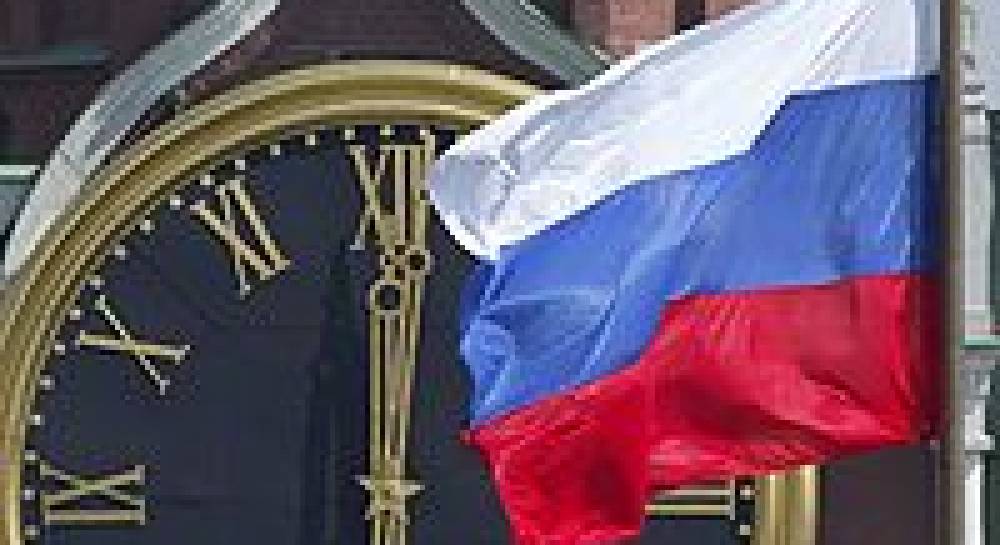
Testing the Cold War in Crimea
A good test of Russian intentions could come in Crimea, the territory jutting out in the Black Sea. It is part of Ukraine. If Russia started to agitate on behalf of its "brothers" in Crimea and argued that it must have Sevastopol...
The Russian military operation against Georgia and its recognition of Abkhazia and South Ossetia have led to concerns amounting at times to near panic about whether a new Cold War is under way.
Russian President Dmitry Medvedev has said that he does not want a new Cold War but is not afraid of one either.
So is the conflict a turning-point heralding a new age of confrontation or just a limited Russian action to resolve two border disputes left over from the Soviet era?
Or something in between, a sign of uncertainty on both sides which will mean tension but not the kind of ideological struggle and military stand-off that was the Cold War itself?
New test
A good test of Russian intentions could come in Crimea, the territory jutting out in the Black Sea. It is part of Ukraine.
French Foreign Minister Bernard Kouchner said: "It`s very dangerous. There are other objectives that one can suppose are the objectives of Russia, in particular Crimea, Ukraine and Moldova."
The problem over Crimea is this. Crimea was handed over to Ukraine from the Russian Soviet Republic by Nikita Khrushchev in 1954. However ethnic Russians still make up the majority of its nearly 2 million inhabitants. It is also home to the Russian navy`s Black Sea Fleet at Sevastopol, on which Russia has a lease until 2017.
Sevastopol has resonance in Russian history, from the siege by the British and French in 1854-55. There have been small demonstrations there recently calling for Crimea to be returned to Russia. Valery Podyachy, head of the Sevastopol-Crimea-Russia Popular Front, said: "While Russia sent aid to flood-hit Ukrainian regions, Ukraine failed to help Russia to force Georgia to peace, and took an openly hostile stance."
There is the potential therefore for trouble. If Russia started to agitate on behalf of its "brothers" in Crimea and argued that it must have Sevastopol (even though it is building another base), Crimea could provide certainly a test of Russian ambitions and possibly a flashpoint.
The other view
This fear of future Russian actions partly explains the Western worries. British Foreign Secretary David Miliband has gone to Ukraine talking of forming "the widest possible coalition against Russian aggression in Georgia".
US Vice President Dick Cheney is going to Georgia. Nato has met to declare that there can be no "business as usual" with Russia.
People are looking up the principles laid down by US diplomat George Kennan after World War II that called for the "containment" of an aggressive Soviet union.
There is another view, though, and this holds that while Russian intentions are not to be trusted, it cannot be wholly blamed for what happened in South Ossetia.
The former British ambassador to Yugoslavia, Sir Ivor Roberts, said: "Moscow has acted brutally in Georgia. But when the United States and Britain backed the independence of Kosovo without UN approval, they paved the way for Russia`s `defence` of South Ossetia, and for the current Western humiliation.
"What is sauce for the Kosovo goose is sauce for the South Ossetian gander."
The borders issue
Behind all this also lies the problem of European borders. During and after the Cold War, it was held (and still is) that borders, however unreasonable to the inhabitants, could not be changed without agreement.
This has given governments a veto. Serbia tried to veto the break-up of Yugoslavia. Georgia has not allowed Abkhazia and South Ossetia to secede. Ukraine holds on to Crimea etc.
The fear that borders may unravel also helps explain why the Russian recognition of Abkhazia and South Ossetia has upset Western governments.
Their problem, however, is that they offer no solutions to those disputes beyond best intentions and a status quo policed by peacekeepers, a status quo that can easily be upset.

